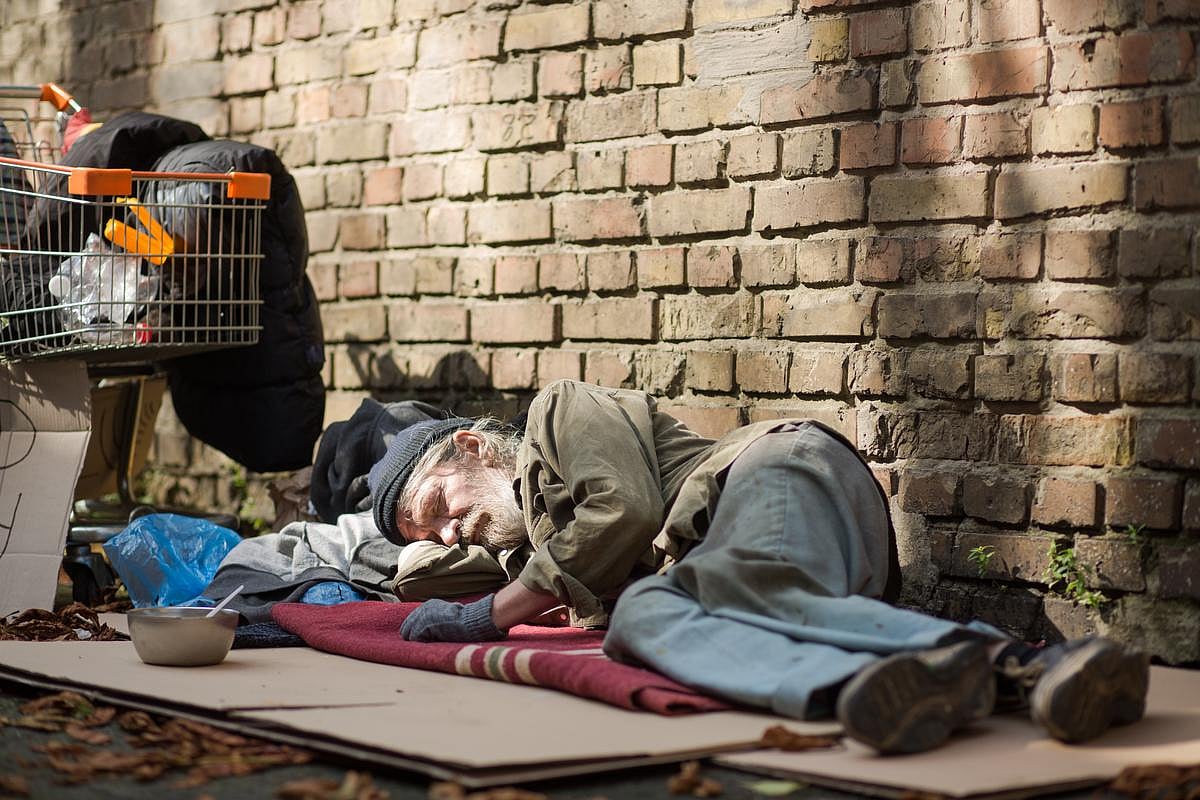Get Healthy!

- Ernie Mundell
- Posted October 15, 2024
Homeless Americans' Death Rate Rises on Hot Days
As temperatures soar in some of America's hottest spots, death rates among local homeless people rise as well, new research shows.
Data from 2015 through 2022 finds a big bump in deaths among unhoused people in Clark County in Nevada (which includes Las Vegas), and Los Angeles County in California.
The death toll could rise even higher as climate change advances, said study senior author Jonathan Jay.
“It was important to see that deaths increased as daily temperatures increased, from cool days to warmer days, and they spiked on hotter days, starting around 90 degrees Fahrenheit and higher,” said Jay, an assistant professor of community health sciences at Boston University.
“That’s hot, but it’s not even close to the hottest temperatures these cities experience," he noted in a university news release.
Jay and his colleagues looked at Clark and Los Angeles county data on deaths to homeless people from all causes, not only deaths directly related to high heat (for example, heat stroke). That's because suffering through high outdoor temperatures can worsen other conditions.
They also looked at deaths linked to extreme cold winter temperatures.
Death rates rose among the homeless when extreme cold set in, but the death toll was highest on days of extreme heat, Jay's team found.
That was especially true for homeless people living in Las Vegas (Clark County), where fatalities on extremely hot days accounted for 25% of deaths per year.
In Los Angeles county, high heat days accounted for 2.2% of annual deaths, the research showed.
The data showed that lacking access to air conditioned spaces puts the homeless at far greater risk for death when temperatures soar.
The findings were published recently in the American Journal of Epidemiology.
“It wasn’t a surprise that our team found an association between heat and mortality for unhoused people, but the magnitude was staggering,” Jay said. “Our estimates are 10 to 100 times greater than the known associations between daily heat and mortality for the general population in LA and Las Vegas, and this finding highlights the moral imperative for our systems to do more.”
There are ways to shield unhoused people from extremes in temperatures, including the establishment of "cooling centers," more shady green spaces, and water stations to help battle dehydration.
Of course, any state policy that raises the availability of stable housing for residents is also crucial, the researchers said.
Unfortunately, "too much of our policy is driven by the impulse to hide homelessness from view, rather than to recognize people’s dignity, protect their health and improve our systems,” Jay said. “The idea that policing is key to solving this problem is false, and it’s a miscalculation we make over and over again as a society.”
More information
Find out more about the dangerous effects of high heat at the National Weather Service.
SOURCE: Boston University School of Public Health, news release, Oct. 10, 2024




